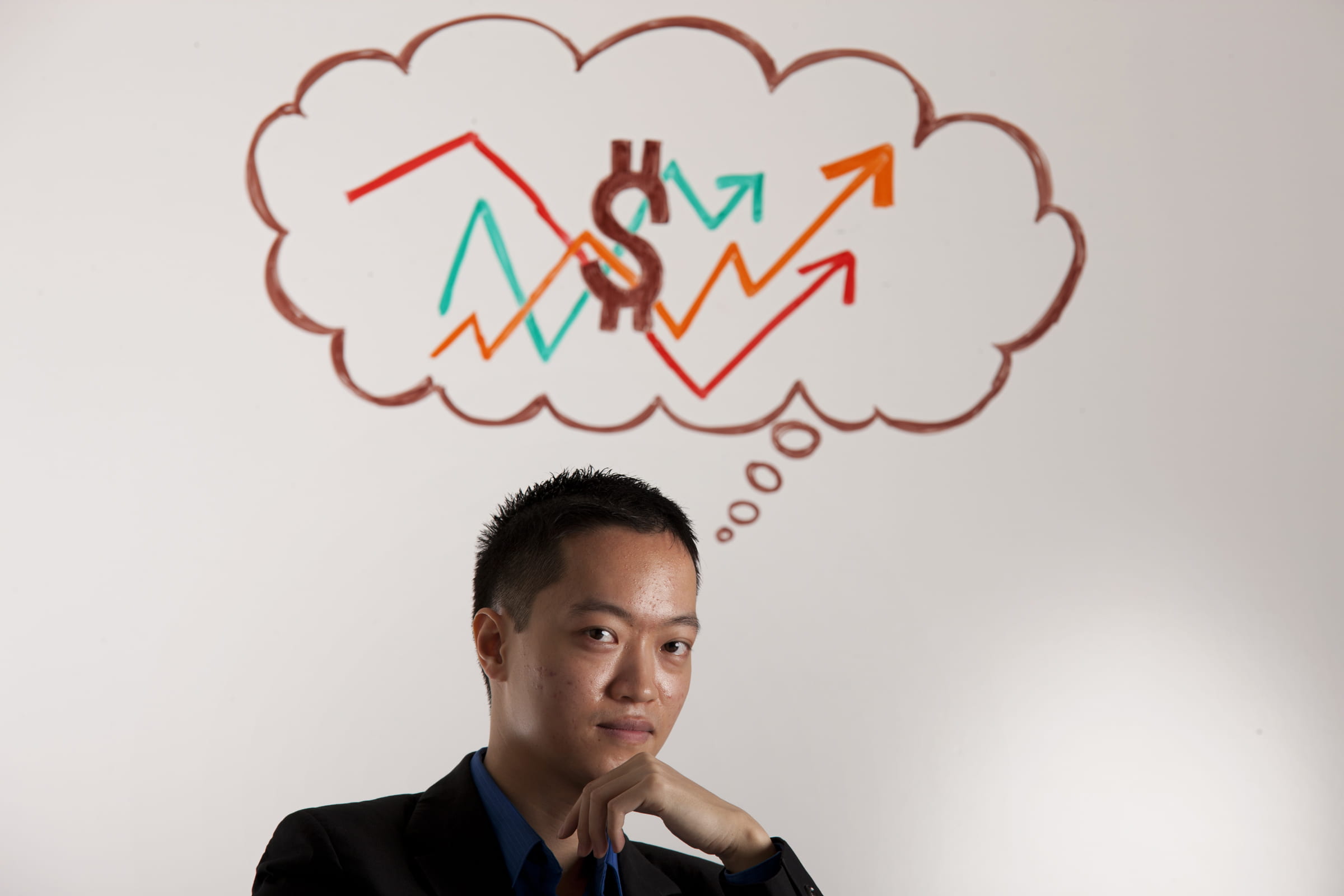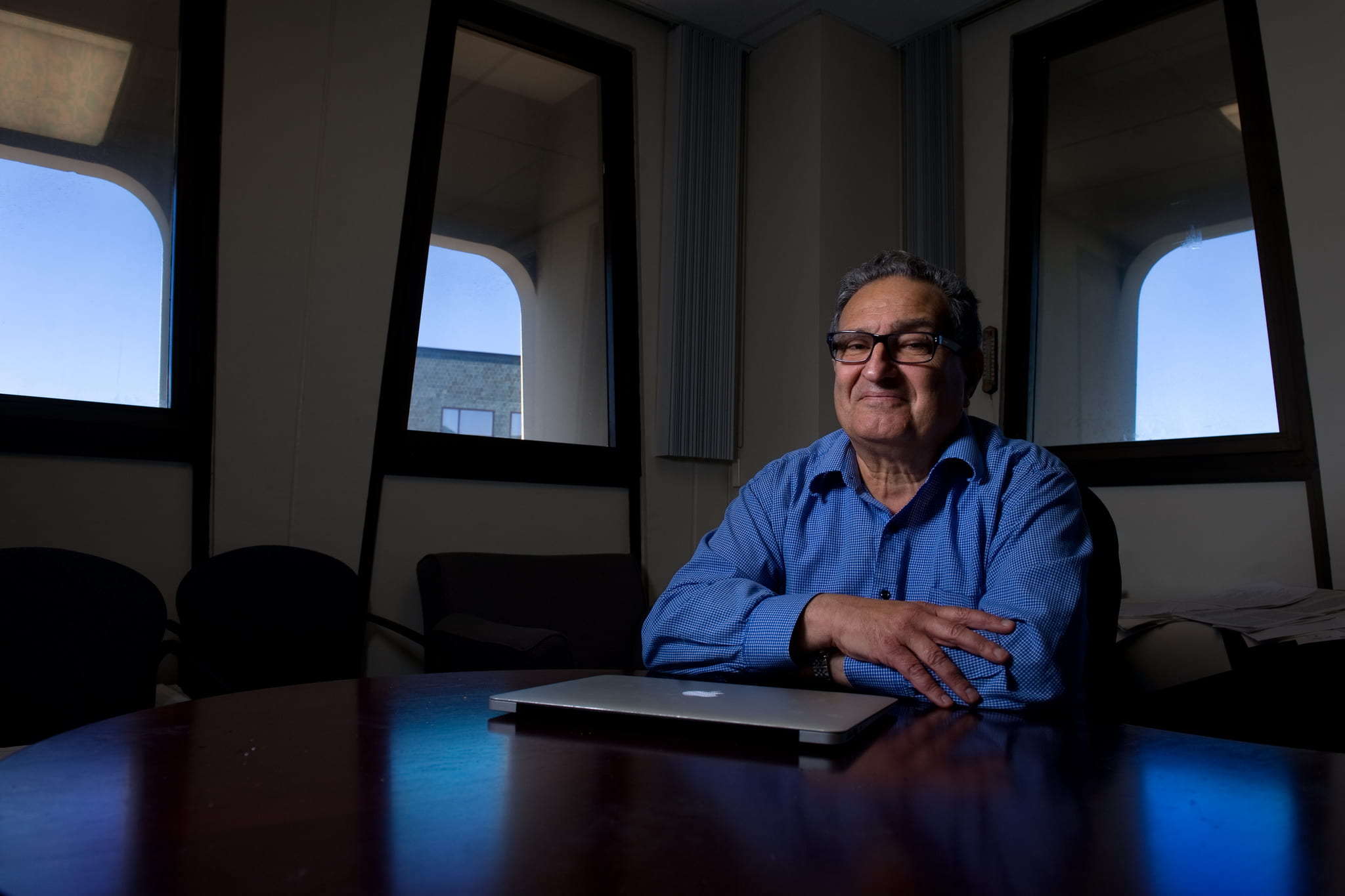Fellowship winner follows his heart
Andrew Chang left a promising engineering career to pursue a doctorate in economics. His research aims to empower U.S. policymakers to create appropriate laws for possible future regulation of the financial sector.

Before coming to UC Irvine, Andrew Chang had had scant experience with California beyond the turnstiles at Disneyland. Years after vacationing with his parents at the Magic Kingdom, he thought of the entire state as “the happiest place on Earth.”
“When making my decision about a grad school, I talked to three or four students at each [candidate] university,” Chang recalls. “All the UCI students sounded really happy. That clinched it for me. I thought, ‘You know what? I’m going to the happy place!’”
Now he has even more reason to feel happy. A third-year doctoral student in the Department of Economics, Chang recently was awarded a $10,000 Public Impact Fellowship. The prize, created by Graduate Division Dean Frances Leslie, supports UCI grad students whose work has the potential to significantly benefit society.
Chang’s work will assist U.S. policymakers in understanding the relationship among finance, innovation and economic growth, empowering them to create appropriate laws for the possible future regulation of the financial sector.
“The fellowship allows me to focus entirely on my research,” he notes.
An Oregon native, Chang earned bachelor’s degrees in economics and electrical engineering from the University of Washington in 2006. He then landed a job in research and development at the Boeing Company in Everett, Wash., where his stature quickly rose.
At the age of 23, Chang served as on-site engineer at Andrews Air Force Base for the debut of a pioneering navigational system – installing it in the government jet that ferries Secretary of State Hillary Clinton around the globe.
“I helped develop the Enhanced Vision System, which allows pilots to see runways in low-visibility conditions,” he explains. “A camera in the nose of the plane can see through metal and fog. Boeing handled the system’s wiring configuration, for which I did a lot of the drawings.”
Despite a career traveling at rocket speed, Chang “deboarded” in 2008 to continue his education, at UCI. “It’s possible I could have climbed the ladder,” he says modestly. “But I wanted more control over my own work. At Boeing, you’re only one part of a giant machine that includes not only 20 bosses but also partner companies.”
Chang decided to focus on economics – albeit influenced by his engineering experience. His current research project investigates the perilous decline in borrowing opportunities for small R&D firms due to the meltdown of U.S. financial institutions.
“I have an understanding of R&D from a large-company point of view, as well as a grasp of the technological aspects,” Chang says. “As an academic, you see things through an academic’s window. But when you come from a different background, your window is different. I hope that allows me to approach my studies at UCI with a fresh perspective.”
On the other hand, he admits, “I really felt a learning curve when I first got here. I hadn’t kept up with the cutting-edge research in economics, so I had to play some catch-up. As an undergrad, I realized how much I didn’t know. In grad school, I realized how much I didn’t know that I didn’t know.”
As a teaching assistant last year, Chang discovered a new passion. “I love teaching – especially teaching a subject I love,” he says. “Being around motivated students who constantly push themselves makes me push myself, too.”
Once Chang finishes his doctorate, he plans to work either for a university as a professor or for the government as an economic adviser.
And he would be, well, happy to stay in his adopted state. “I’ve lived here three years, and it feels like three days,” Chang says. “I’m so content to be in California.”

